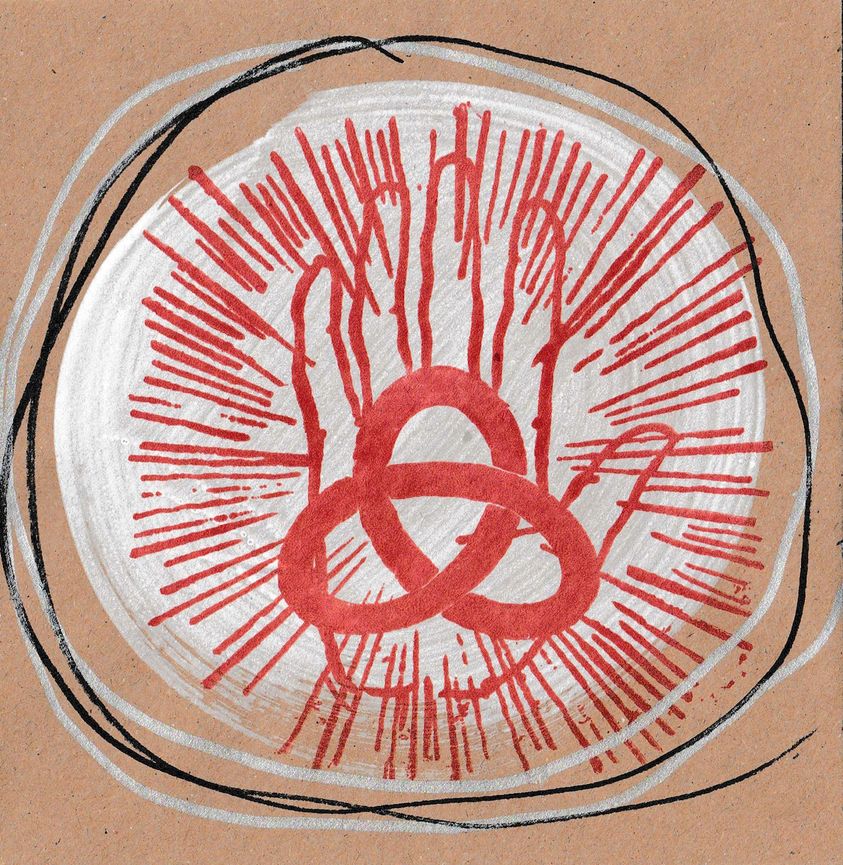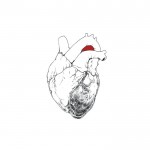 Die Wucht, mit der die Swans 2010 mit “My Father Will Guide Me up a Rope to the Sky” nach ihrer selbst so betitetelten „reconstitution“ wiederkehrten, beeindruckte und wer die darauf folgenden (Doppel-)Alben „The Seer“, „To Be Kind“ und “The Glowing Man“ und die Konzerte erlebte, die abseits der Lautstärke in ihrer schieren physischen Präsenz, Exzessivität und Überschreitung Band wie Zuschauer an ihre Grenzen führten und dabei (auch) deutlich machten, was Musik noch immer kann, dem war klar, dass ein Ende irgendwann da sein würde und wenn auch nur aufgrund des fortschreitenden Alters der Beteiligten. Weiterlesen
Die Wucht, mit der die Swans 2010 mit “My Father Will Guide Me up a Rope to the Sky” nach ihrer selbst so betitetelten „reconstitution“ wiederkehrten, beeindruckte und wer die darauf folgenden (Doppel-)Alben „The Seer“, „To Be Kind“ und “The Glowing Man“ und die Konzerte erlebte, die abseits der Lautstärke in ihrer schieren physischen Präsenz, Exzessivität und Überschreitung Band wie Zuschauer an ihre Grenzen führten und dabei (auch) deutlich machten, was Musik noch immer kann, dem war klar, dass ein Ende irgendwann da sein würde und wenn auch nur aufgrund des fortschreitenden Alters der Beteiligten. Weiterlesen
Schlagwort-Archive: Michael Gira
The Beggar: Neues Swans-Album im Juni
Am 23. Juni erscheint mit „The Beggar“ der Nachfolger des letzten Swans-Albums „Leaving Meaning“. „The Beggar“ wurde in Berlin in der Besetzung Michael Gira, Kristof Hahn, Larry Mullins, Dana Schechter, Christopher Pravdica, Phil Puelo und Ben Frost aufgenommen.
Public Castration is a Good Idea: Wiederveröffentlichung des Livealbums der Swans
Auf Young God Records in den USA und Mute in Europa erscheint das urspünglich 1986 als „official bootleg“ erschienene Livealbum mit dem konfrontativen Titel „Public Castration Is A Good Idea“. Das Album enthält im Frühjahr 1986 gemachte Aufnahmen von verschiedenen Auftritten in England, während die Swans ihre Alben „Holy Money“ und “Greed” tourten. Das damalige Lineup bestand aus Michael Gira, Jarboe, Norman Westberg, Algis Kizys and Ronaldo Gonzalez. Die Aufnahmen zeigen die Band in ihrer damaligen beeindruckenden monotonen Wucht und Wut.
Michael Gira, Jozef van Wissem, Jarboe und Kristof Hahn in der Berliner Betonhalle
In der Betonhalle – einer erst kurz vor der Pandemie eröffneten Location innerhalb des Berliner Silent Green-Komplexes – treten am 1. Dezember gleich fünf namhafte Musikerinnen und Musiker auf.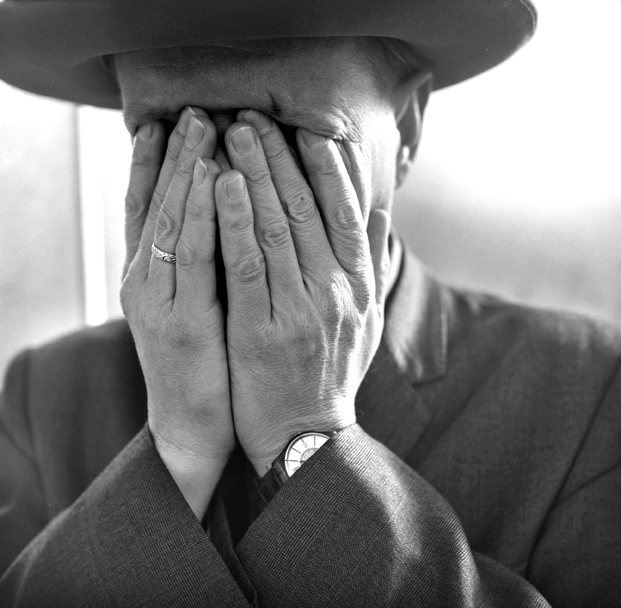 Weiterlesen
Weiterlesen
Is there a mind? Fundraiser für neues Album der Swans
Wie schon in den vergangenen Jahren gibt es im Vorfeld der Aufnahmen für das neue Album der Swans einen Fundraiser zur Finanzierung. Unter dem Titel „Is There a Mind?“ werden zehn von Michael Gira eingespielte Akustikversionen künftiger Swansstücke als handgemachte CD veröffentlicht.
I don’t see any point in wasting time doing the same things: Ein Interview mit Michael Gira
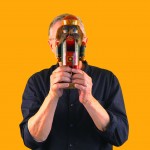 Michael Gira hatte kurz vor Veröffentlichung des Albums „The Glowing Man“ bekanntgegeben, die Swans in der festen Bandkonstellation, wie sie seit 2010 existierten, aufzulösen und künftig mit einem losen Kollektiv von Musikern arbeiten zu wollen. „Leaving Meaning“, das jüngst erschienene Album, wurde dann auch sowohl mit altbekannten Musikern (z.B. Christof Hahn, Thor Harris, Norman Westberg) als auch mit neuen Gesichtern (z.B. Ben Frost, The Necks, Baby Dee, Anna von Hauswolff) aufgenommen. Weiterlesen
Michael Gira hatte kurz vor Veröffentlichung des Albums „The Glowing Man“ bekanntgegeben, die Swans in der festen Bandkonstellation, wie sie seit 2010 existierten, aufzulösen und künftig mit einem losen Kollektiv von Musikern arbeiten zu wollen. „Leaving Meaning“, das jüngst erschienene Album, wurde dann auch sowohl mit altbekannten Musikern (z.B. Christof Hahn, Thor Harris, Norman Westberg) als auch mit neuen Gesichtern (z.B. Ben Frost, The Necks, Baby Dee, Anna von Hauswolff) aufgenommen. Weiterlesen
I don’t see any point in wasting time doing the same things: An interview with Michael Gira
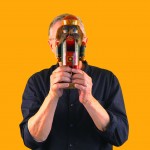 Shortly before the release of their previous album “The Glowing Man”, Michael Gira announced that he would disband the Swans in the fixed constellation, in which they had existed since 2010, to work with a rather loose collective of musicians instead. “Leaving Meaning”, the recently released album, was recorded with well-known former band members (e.g. Christof Hahn, Thor Harris, Norman Westberg) as well as with new faces (e.g. Ben Frost, The Necks, Baby Dee, Anna von Hauswolff). I spoke to Michael Gira while he was on a solo tour in Europe.
Shortly before the release of their previous album “The Glowing Man”, Michael Gira announced that he would disband the Swans in the fixed constellation, in which they had existed since 2010, to work with a rather loose collective of musicians instead. “Leaving Meaning”, the recently released album, was recorded with well-known former band members (e.g. Christof Hahn, Thor Harris, Norman Westberg) as well as with new faces (e.g. Ben Frost, The Necks, Baby Dee, Anna von Hauswolff). I spoke to Michael Gira while he was on a solo tour in Europe.
I remember reading some years ago that you said that that particular incarnation of Swans felt like the most connected group. Later you announced that you would stop Swans the way they had been going for some years. Would you say that it was a logistical matter, a physical, a financial one? I mean, I saw you live a couple of times, in Cologne, Frankfurt, Atlanta and it was an incredibly physical experience – in the most positive sense of the word.
Sure, for us it was physical, spiritual, emotional. Everything. It was a high point of the career because as a group we were kind of clairvoyant. We’d read each other’s minds as we played and since improvisation was such an important part of the process it enabled the music to unfold in front of us as we were witnessing it and not actually making it happen ourselves. It was very strange but after having been in such close proximity with six people, for well over 200 days a year, you begin some point of diminishing returns. There’s no further you can go with it. So I think we cut it off at the kind of correct time and it was a good point to move into something else, something unfamiliar.
In the inlay to the CD with the demo versions of the new songs it says “record the album. With whom? Where?“ How did you decide who would be part of this new incarnation of Swans and who would do what?
Well, I made a list of ideal people with whom I would collaborate and it was based not only on their musical skills but I pictured them in a room with me or with the group of people playing and how would that look? How would that feel? So I chose people according to those criteria. Musical skills one of them, but also who they are what their sensibilities are. That was just as important. That’s how I came to work with these people on this record. It’s no longer a band per se. It’s just a collection of individuals I gather in order to produce a record or to make a tour.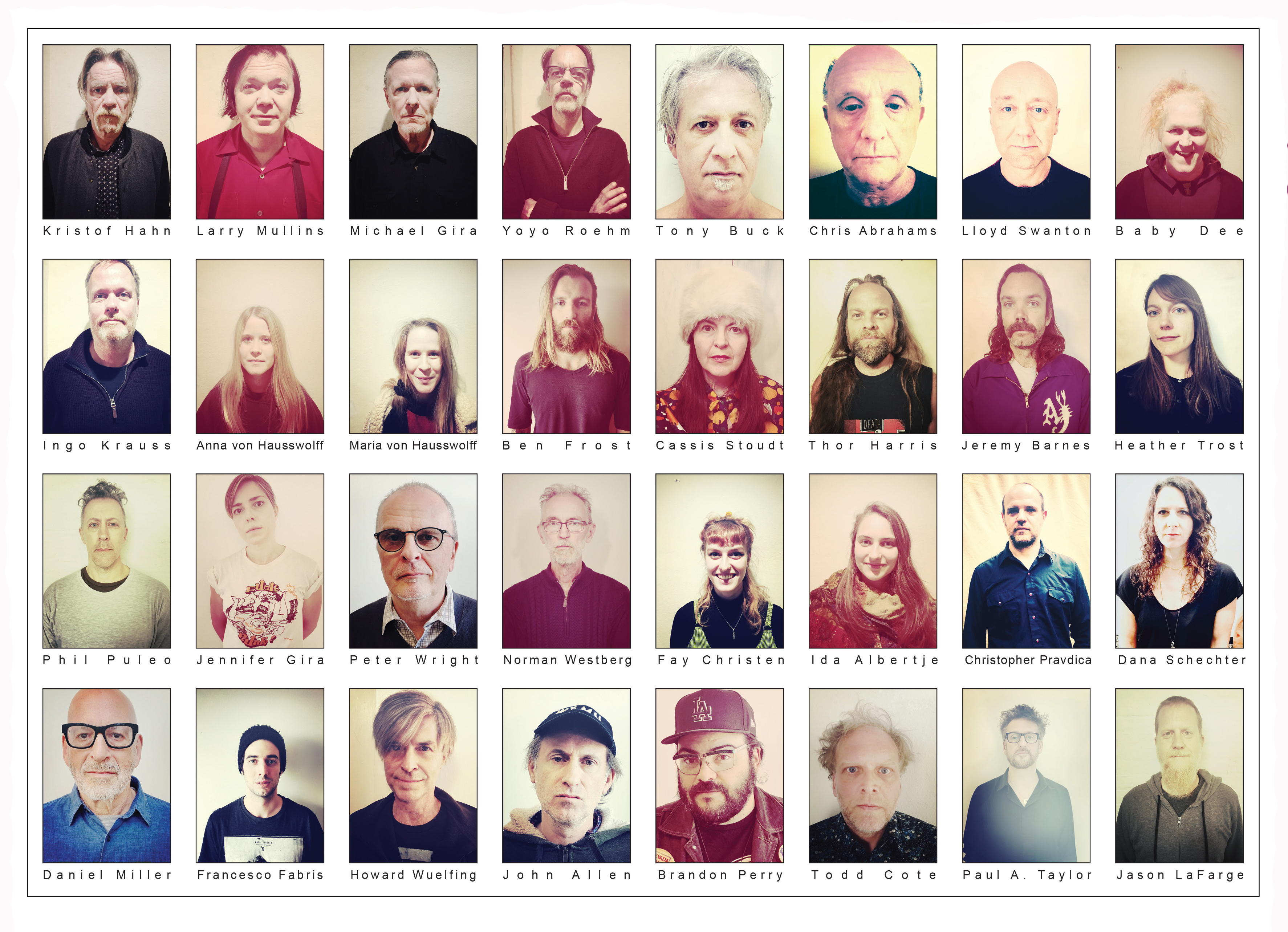
How did you decide that Baby Dee would sing on “The Nub“? She’s amazing.
She played with us on a couple of tours. I love her personally. She is tremendously talented and funny and great as person. I was playing the guitar figure that is the basis of that song and I was humming along and then suddenly there was this image in my mind that came out of nowhere: Baby Dee floating in space wearing nothing but diapers drinking milk from the stars.
I guess she loved that image.
So having that image allowed the song to write itself and then I contacted her and she thought it was a wonderful idea singing that song and I think she appreciated the work and so I flew her to Berlin to perform the song. She did it like a true professional in one take. She is a great cabaret performer. So that was a wonderful experience.
What would you say is the relationship between the new album and the last three? You may call them a trilogy. There seem to be similarities but also differences.
I work with a lot of people and I collaborate with them and I’m also the director, I suppose that’s a good word for it. It was my job to decide what things in the last three albums were becoming predictable and what things were a potential to move forward. So I chose things that could move forward. Certainly not have the kind of slow motion explosions on a downbeat that became a signature, a kind of trope for Swans. Nor could I have the ever escalating crescendos or the tornadoes of dissonant sound. So what remained? What remained were the songs and the tones around the chords and the voice. Then the task was how to create a visual picture, an audiovisual picture. So I gathered the musicians and then I kind of directed it.
You’ve just mentioned that there aren’t any more of those crescendos anymore. I feel that the new album is – for want of a better term – slightly more contemplative.
When I’m in the studio making music, I don’t use adjectives like that to describe it. I don’t see it in the history of a band. I don’t place it in a pop context. I don’t apply any kind of critical thinking in that regard.
When looking at some of the words on the album: When I listened to “Your Phantom Limb“ and there it says “music is sacred / love is sacred / silence is sacred“ and at the end you’ve got “we’re flying / we’re rising“. Would you say that is somehow a programmatic?
Problematic?
No, programmatic. In the sense of this being a central idea, a leitmotif.
I don’t know. Perhaps. I suppose if one concentrates, truly concentrates on their existence, inwards and outwards simultaneously, everything achieves an equal urgency. It’s those states of mind that I admire really. Without judgement or even words to be subsumed, completely penetrated by experience is an ideal state of mind for me.
 Would you say that that is something than you can also – ideally – achieve in a live context?
Would you say that that is something than you can also – ideally – achieve in a live context?
Certainly in the last version of Swans there were times – not all the time, certainly – when the music was churning and unfolding. We weren’t playing. It was happening to all of us including the audience. With our active participation but to an extent where it took over. It was really a kind of wonderful thing being so exactly attuned to the magic of experience through sound.
Well, every time I saw you I thought this is extremely physical, also for the audience and I asked myself how you managed to do this – especially when you are on a long tour.
I don’t know how we did it. I don’t do it anymore. I’m sixty-five years old and there’s something in my bones resembling age and the kind of stamina that is required for three-hour performances, six nights a week, no sleep etc. is not possible anymore but it was not only physical it was also something beyond that as well and it was tremendously rewarding for us and also for the audience. It was a great experience and I’m very happy that that was a part of my life.
You mentioned at the beginning when you talked about the recording of the new album that you didn’t want to repeat yourself and I’ve just read that on the new tour you will play material from “Leaving Meaning“ as well as unreleased material, new material. Is that right?
Well, yes. This material doesn’t exist yet but my first job when I get home from this tour in a couple of weeks is to picture all the people with whom I’ll be playing on tour in a room with each other and write some new material specifically for this ensemble. I don’t want just depict or repeat the songs that are on this record. That’s not for me. Some people do it. I’m not interested in that. I wanna use the material as vehicle, a starting point to make something else, greater than the material.
When you look around and you see a lot of bands that have been around for as long as you have, many of them seem to be some kind of nostalgia act, playing a best of and they recorded the last new songs ages ago and nothing new is coming.
Yeah. One has a very limited amount of time on earth and I don’t see any point in wasting time doing the same things.
Life’s short. Unfortunately. I guess.
Because it’s so short it can be incredibly powerful and maybe even transcendent.
Do you feel a ind of satisfaction that now so many people come to see Swans and you finally reap the rewards you deserve?
Well, it’s certainly nice to have an audience that comes in order to experience what Swans can provide and it’s nice to see that it’s quite a number of them. One always has to see if one wants to retain integrity as an artist one always has to be cautious of allowing notoriety or pain to have any meaning in their lives because that’s the corruptor of truth so I think it’s important that I make good work and work that has value for oneself and others and going with that goal in mind.
There’s one more thing I wanted to ask you that is not directly related to the album. I’ve got your collection of short stories “The Egg“ and I was wondering whether there’s a difference between writing these stories or lyrics or are there a lot of similarities?
I would say that the similarity that they bear to one another would be that when I start I have no idea where the fuck it’s going and if I’m lucky an image appears and if I’m even luckier another image appears attached to that image and gradually something is forged. I mean the stories aren’t really stories, they are more scenarios, situations. I have no hope of writing like a normal writer, you know, writing characters and plot although I enjoy that very much reading it myself but I approach writing more like a visual artist. I just describe a situation and then get fuck out of town when that starts.
Interview: MG, Pictures: Jennifer Gira
SWANS: Leaving Meaning
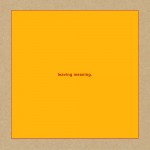 Wer ursprünglich glaubte, Michael Giras Insistieren, dass es sich bei der Wiederbelebung der Swans vor knapp zehn Jahren nicht um eine Reunion, sondern um eine „reconstitution“ handele, sei bloß eine semantische Spitzfindigkeit, den sollten die in den letzten Jahren entstandenen Alben und insbesondere die Auftritte eines Besseren belehrt haben: Das erste Album der neuen Weiterlesen
Wer ursprünglich glaubte, Michael Giras Insistieren, dass es sich bei der Wiederbelebung der Swans vor knapp zehn Jahren nicht um eine Reunion, sondern um eine „reconstitution“ handele, sei bloß eine semantische Spitzfindigkeit, den sollten die in den letzten Jahren entstandenen Alben und insbesondere die Auftritte eines Besseren belehrt haben: Das erste Album der neuen Weiterlesen
V.A.: Stumm 433
 In Paul Austers Opus Magnum 4321 bekommt der Protagonist (respektive eine Inkarnation von ihm) John Cages Buch Silence mit den Worten geschenkt: „You have to read this […], or else you’ll never learn how to think about anything except what other people want you to think.“ Er blättert durch das Werk und stößt auf das Zitat: „The world is teeming: anything can happen.“ Für Mutechef Daniel Miller ist Cage ebenfalls eine enorm wichtige Bezugsgröße und er betont, von welch zentraler Bedeutung Weiterlesen
In Paul Austers Opus Magnum 4321 bekommt der Protagonist (respektive eine Inkarnation von ihm) John Cages Buch Silence mit den Worten geschenkt: „You have to read this […], or else you’ll never learn how to think about anything except what other people want you to think.“ Er blättert durch das Werk und stößt auf das Zitat: „The world is teeming: anything can happen.“ Für Mutechef Daniel Miller ist Cage ebenfalls eine enorm wichtige Bezugsgröße und er betont, von welch zentraler Bedeutung Weiterlesen
SWANS: Soundtracks for the Blind (+ Die Tür Ist Zu)
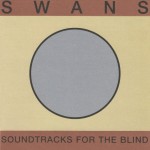 Viele Musiker, die sich am Ende eines Schaffensabschnitts sehen, ziehen irgendeine Art Resümee, und es ist immer erfreulich, wenn dies nicht nur in Form einer ordinären Best-of Compilation erfolgt. Swans haben vor ihrer vorübergehenden Auflösung Mitte der 90er „Soundtracks for the Blind“ herausgebracht, ein schon von der Länge her monumentales Album, das vielleicht nicht sofort als ein solches Resümee zu erkennen ist, bei genauerem Hinhören jedoch wie eine eigenwillig gestaltete Summa ihrer Weiterlesen
Viele Musiker, die sich am Ende eines Schaffensabschnitts sehen, ziehen irgendeine Art Resümee, und es ist immer erfreulich, wenn dies nicht nur in Form einer ordinären Best-of Compilation erfolgt. Swans haben vor ihrer vorübergehenden Auflösung Mitte der 90er „Soundtracks for the Blind“ herausgebracht, ein schon von der Länge her monumentales Album, das vielleicht nicht sofort als ein solches Resümee zu erkennen ist, bei genauerem Hinhören jedoch wie eine eigenwillig gestaltete Summa ihrer Weiterlesen
Michael Gira solo in der Berliner Volksbühne
Am Sonntag, den 18. Februar, gibt Michael Gira ein Solo-Konzert im Großen Haus der Berliner Volksbühne. Solo heißt wie bei früheren Alleingängen des Swans-Frontmannes wirklich solo, also nur von seiner Gitarre begleitet. Das Vorprogramm wird der Improv-Gitarrist Olaf Rupp bestreiten, außerdem steht für’s Parkettcafé ein DJ-Set von Henryk Gericke (Staatsgalerie Prenzlauer Berg) auf dem Plan.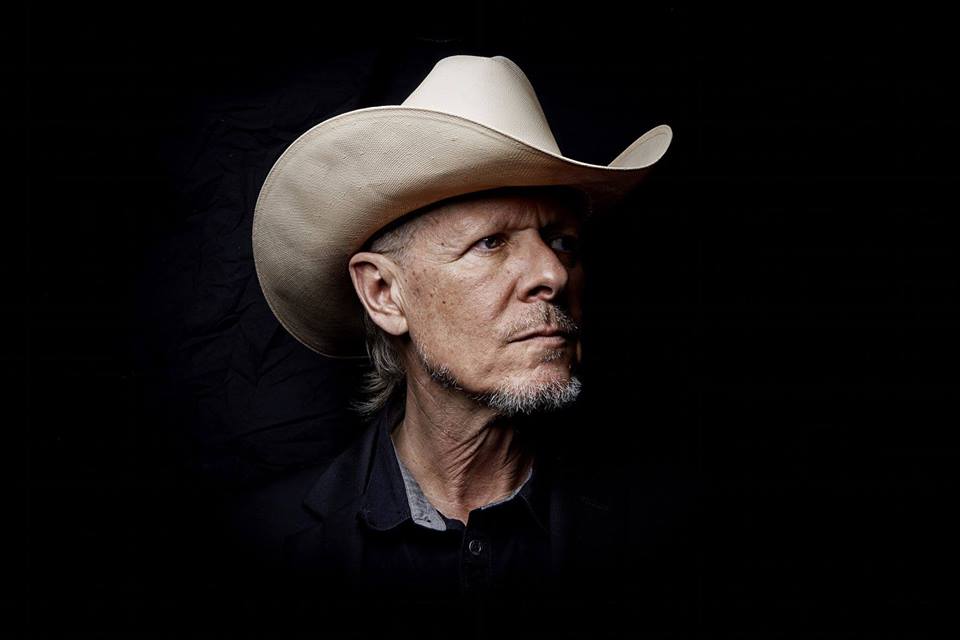 Weiterlesen
Weiterlesen
SWANS: The Great Annihilator (inkl. MICHAEL GIRA: Drainland)
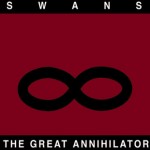 In einer Hinsicht kann man die Phase der Swans Mitte der 90er mit der heutigen Zeit vergleichen: Ein Abschnitt ihres Schaffens hatte so langsam seinen Zenit überschritten und neigte sich seinem Ende zu, das eine Auszeit und einen wie auch immer gearteten Neuanfang nach sich ziehen musste. „The Great Annihilator“ war das letzte typische Album dieser Werkphase, die seit Ende der 80er andauerte und im Unterschied zum düster-atonalen Frühwerk – ohne dessen Hang zu repetitiver Monotonie völlig aufzugeben – melodische Elemente integrierte. Ähnlich einer ganze Zahl an lärmenden Weiterlesen
In einer Hinsicht kann man die Phase der Swans Mitte der 90er mit der heutigen Zeit vergleichen: Ein Abschnitt ihres Schaffens hatte so langsam seinen Zenit überschritten und neigte sich seinem Ende zu, das eine Auszeit und einen wie auch immer gearteten Neuanfang nach sich ziehen musste. „The Great Annihilator“ war das letzte typische Album dieser Werkphase, die seit Ende der 80er andauerte und im Unterschied zum düster-atonalen Frühwerk – ohne dessen Hang zu repetitiver Monotonie völlig aufzugeben – melodische Elemente integrierte. Ähnlich einer ganze Zahl an lärmenden Weiterlesen
Swans auf Abschiedstour in Deutschland mit Little Annie und Baby Dee als Support (22. – 28. Oktober)
Seit Monaten touren die Swans nach ihrem Album “The Glowing Man” in verschiedenen Ländern, um sich – zumindest in ihrer jetzigen Konstellation – von ihren Fans zu verabschieden. Im Oktober werden sie nun auch in Deutschland halt machen und sind in Heidelberg, Dresden, Bremen und zweimal in Berlin zu sehen. Zur Einstimmung spielen bei den jeweiligen Konzerten entweder Little Annie oder Baby Dee.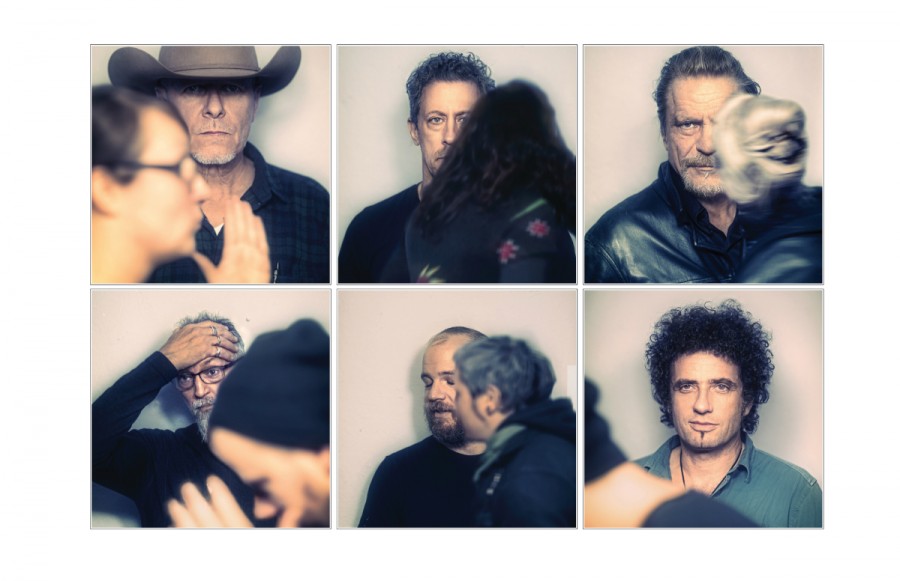 Weiterlesen
Weiterlesen
SWANS: The Glowing Man
 In Richard Powers Roman The Time of Our Singing sagt der Ich-Erzähler an einer Stelle: „most people wanted from music not transcendence but simply companionship, a tune just as bound by gravity as its listeners were“. Wer die Swans bei einem ihrer zahlreichen Auftritte erlebt hat, der braucht nicht einmal auf Michael Giras Äußerung zum neuen Album zu verweisen (“I’m decidedly not a Deist, but on a few occasions – particularly in live performance – it’s been my privilege, through our collective efforts, to just barely grasp something of the infinite in the sound and experience generated by a force that is definitely greater than all of us combined.”), Weiterlesen
In Richard Powers Roman The Time of Our Singing sagt der Ich-Erzähler an einer Stelle: „most people wanted from music not transcendence but simply companionship, a tune just as bound by gravity as its listeners were“. Wer die Swans bei einem ihrer zahlreichen Auftritte erlebt hat, der braucht nicht einmal auf Michael Giras Äußerung zum neuen Album zu verweisen (“I’m decidedly not a Deist, but on a few occasions – particularly in live performance – it’s been my privilege, through our collective efforts, to just barely grasp something of the infinite in the sound and experience generated by a force that is definitely greater than all of us combined.”), Weiterlesen
SWANS: White Light from the Mouth of Infinity & Love of Life
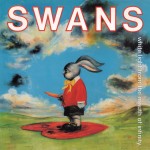 Es ist nicht leicht, etwas allgemein Einführendes zu den Swans zu sagen, ohne dabei Gemeinpläze zu bedienen. Ich schlage folgende Behauptung vor: Swans ist eine Band, die nicht jedem angeraten ist, ein unerfahrenes Sensibelchen mit Hang zu starker Identifikation könnte – weniger durch die Wucht der Musik als vielmehr durch den oft doppenbödigen, aber stets kompromisslosen Sarkasmus in Michael Giras Worten – fatal in Mitleidenschaft gezogen werden, psychisch wie physisch, und das gilt für alle Werkphasen der amerikanischen Band, die seit den Anfängen im No Wave und Power Rock der Weiterlesen
Es ist nicht leicht, etwas allgemein Einführendes zu den Swans zu sagen, ohne dabei Gemeinpläze zu bedienen. Ich schlage folgende Behauptung vor: Swans ist eine Band, die nicht jedem angeraten ist, ein unerfahrenes Sensibelchen mit Hang zu starker Identifikation könnte – weniger durch die Wucht der Musik als vielmehr durch den oft doppenbödigen, aber stets kompromisslosen Sarkasmus in Michael Giras Worten – fatal in Mitleidenschaft gezogen werden, psychisch wie physisch, und das gilt für alle Werkphasen der amerikanischen Band, die seit den Anfängen im No Wave und Power Rock der Weiterlesen
SWANS: To Be Kind
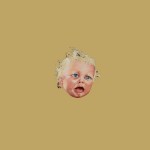 Die Musik, die die Swans seit ihrer von Gira so betitelten „reconstitution“ spielen, kann man partiell zwar als aggressiv charakterisieren, viel angemessener lässt sie sich – und zwar gilt das für die Ohren zerstörenden Auftritte ebenso wie die Alben – als enorm physische, fast schon körperlich vielleicht nicht anstrengende, aber herausfordernde Musik beschreiben und zwar für Band wie für Hörer gleichermaßen – und das sollte man rein deskriptiv, nicht als Kritik verstehen. Allein die schiere Menge an Material kann einschüchternd wirken: Nach dem etwa zweistündigen „The Seer“ folgen wieder etwa 120 Minuten, diesmal auf 10 Songs, Tracks (auf dem die Aufnahmen für das Album finanzierenden Live-Album „Not Here / Not Now“ schrieb Gira dann auch: „it’s admittedly a stretch to call some of them ‘songs’“ ) verteilt. Weiterlesen
Die Musik, die die Swans seit ihrer von Gira so betitelten „reconstitution“ spielen, kann man partiell zwar als aggressiv charakterisieren, viel angemessener lässt sie sich – und zwar gilt das für die Ohren zerstörenden Auftritte ebenso wie die Alben – als enorm physische, fast schon körperlich vielleicht nicht anstrengende, aber herausfordernde Musik beschreiben und zwar für Band wie für Hörer gleichermaßen – und das sollte man rein deskriptiv, nicht als Kritik verstehen. Allein die schiere Menge an Material kann einschüchternd wirken: Nach dem etwa zweistündigen „The Seer“ folgen wieder etwa 120 Minuten, diesmal auf 10 Songs, Tracks (auf dem die Aufnahmen für das Album finanzierenden Live-Album „Not Here / Not Now“ schrieb Gira dann auch: „it’s admittedly a stretch to call some of them ‘songs’“ ) verteilt. Weiterlesen
SWANS: The Seer
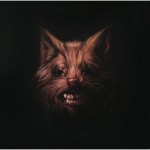 Als die Swans 1996 mit „Soundtracks For The Blind“ das letzte Studioalbum für 14 Jahre veröffentlichten, waren das zwei CDs voller Loops, Collagen, Fragmente, ausufernder Stücke, die das vorwegnahmen, was später Postrock genannt werden sollte und auf gewisse Weise war das auch ein Eingestehen, dass man das, was musikalisch möglich war, ausgeschöpft und erschöpft hatte, ähnlich vielleicht wie das Spätwerk Shakespeares Theaterkonventionen und das, was zur damaligen Zeit aufführungstechnisch möglich war, sprengte. Weiterlesen
Als die Swans 1996 mit „Soundtracks For The Blind“ das letzte Studioalbum für 14 Jahre veröffentlichten, waren das zwei CDs voller Loops, Collagen, Fragmente, ausufernder Stücke, die das vorwegnahmen, was später Postrock genannt werden sollte und auf gewisse Weise war das auch ein Eingestehen, dass man das, was musikalisch möglich war, ausgeschöpft und erschöpft hatte, ähnlich vielleicht wie das Spätwerk Shakespeares Theaterkonventionen und das, was zur damaligen Zeit aufführungstechnisch möglich war, sprengte. Weiterlesen



